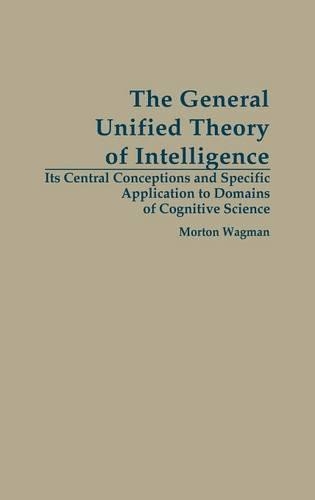
The General Unified Theory of Intelligence: Its Central Conceptions and Specific Application to Domains of Cognitive Science
(Hardback)
Publishing Details
The General Unified Theory of Intelligence: Its Central Conceptions and Specific Application to Domains of Cognitive Science
By (Author) Morton Wagman
Bloomsbury Publishing PLC
Praeger Publishers Inc
19th February 1997
United States
Classifications
Tertiary Education
Non Fiction
Artificial intelligence (AI)
Philosophical traditions and schools of thought
153
Physical Properties
Hardback
152
Description
The general unified theory of intelligence addresses the cognitive functions of thinking, reasoning, and problem solving. At an abstract level, this theory construes the intellective functions of humans and computers as, respectively, restricted and directed forms of the logic of implication. In other words, human intelligence operates according to production rules. Here, Wagman presents the central tenets and research elaboration of the general unified theory of intelligence that embraces both human and artifical intelligence across the cognitive domains of scientific discovery processes, inductive and deductive reasoning, and the mechanisms basic to analogical thinking and problem solving.
Author Bio
MORTON WAGMAN is Professor Emeritus of Psychology at the University of Illinois. He is the originator of the PLATO computer-based Dilemma Counseling System. His numerous publications include Human Intellect and Cognitive Science (Praeger, 1996), Cognitive Psychology and Artifical Intelligence (Praeger, 1993), and Cognitive Science and Concepts of Mind (Praeger, 1991).
